In the past, we’ve written a blog post about why a candidate hasn’t gotten a job that they have interviewed for, utilising real feedback from real clients. However, we thought it was time to turn it on its head and do some research into the reasons why candidates turn down job offers.
It is no secret that, in order to thrive, a business needs the best talent that it can get its hands on. It can be incredibly frustrating for hiring managers when, after looking through dozens of CVs and interviewing several candidates, they believe that they have found the perfect candidate for the role… only for that candidate to turn down the job offer that has been extended.
Hopefully, you will be able to use our research to give you an insight into the main reasons why a candidate may turn down a job offer. Sometimes, it can be a purely personal decision and nothing your business can do will change their mind. However, our research discovered that two reasons for turning down a job offer are surprisingly common…
How we did it
In order to get as wide a response to our polls as possible, we turned to social media. Over the course of ten days, we posted two polls on three of our social media accounts – Twitter, Instagram, and LinkedIn.
We also asked our followers to privately message us – completely anonymously - if they had a different reason for turning down an offer or wished to expand on their choice.
We want to start off by saying a huge thank you to everyone that participated in our research!
What did we find?
Unsurprisingly, turning down a job offer is an incredibly common occurrence – 81% of those that responded to our poll had done so.
It was interesting, however, to see how the answers differed across different platforms. On Instagram, for example, the percentage of respondents that said they had turned down a job offer was 73% - lower than the average, and significantly lower than Twitter, where 89% of respondents had stated that they had turned down an offer.
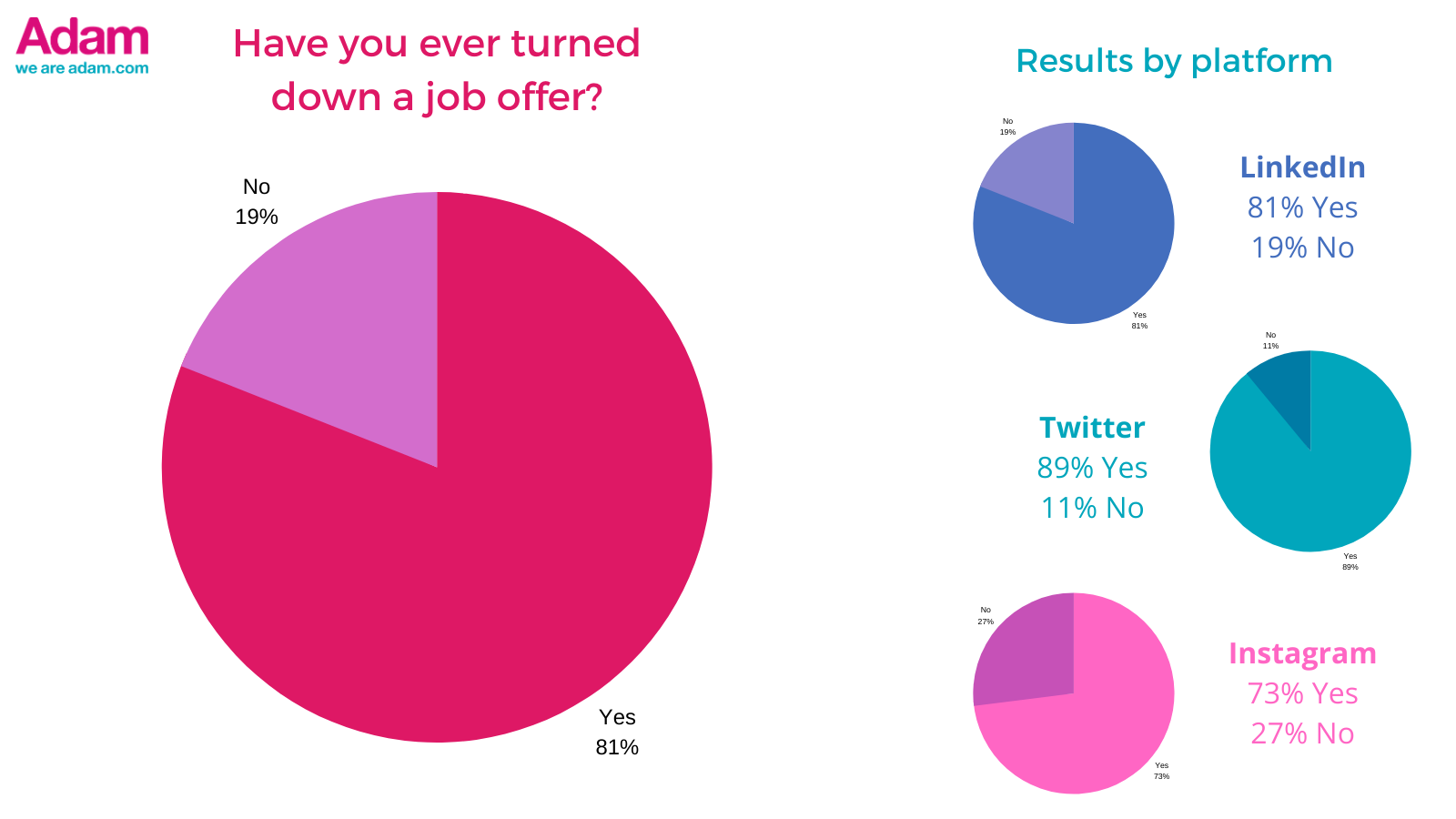
It may be speculation, but it could be that Instagram users – who are generally from younger generations and have come of age into a ‘gig economy’ – have experienced more job insecurity, leading them to accept the first job offered to them.
So… why did the candidate turn down the job?
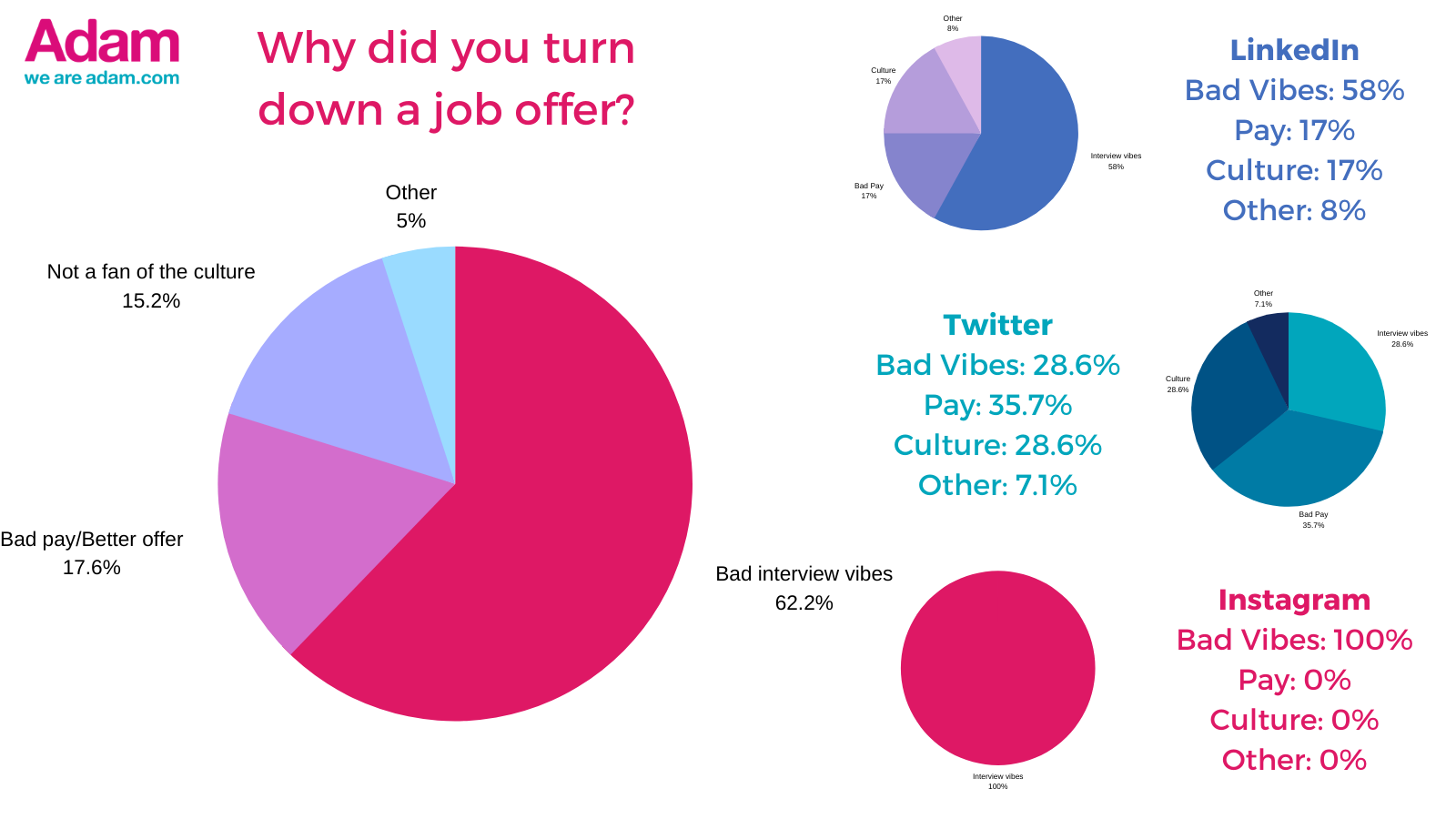
For the second set of polls, we wanted to find out why people had turned down job offers. We narrowed our answers down to three, as well as an ‘Other’ option with an invitation to DM us their reasons if they wished.
The three main options were ‘Bad interview vibes’, ‘Bad pay/Better offer’, and ‘Not a fan of the culture.’
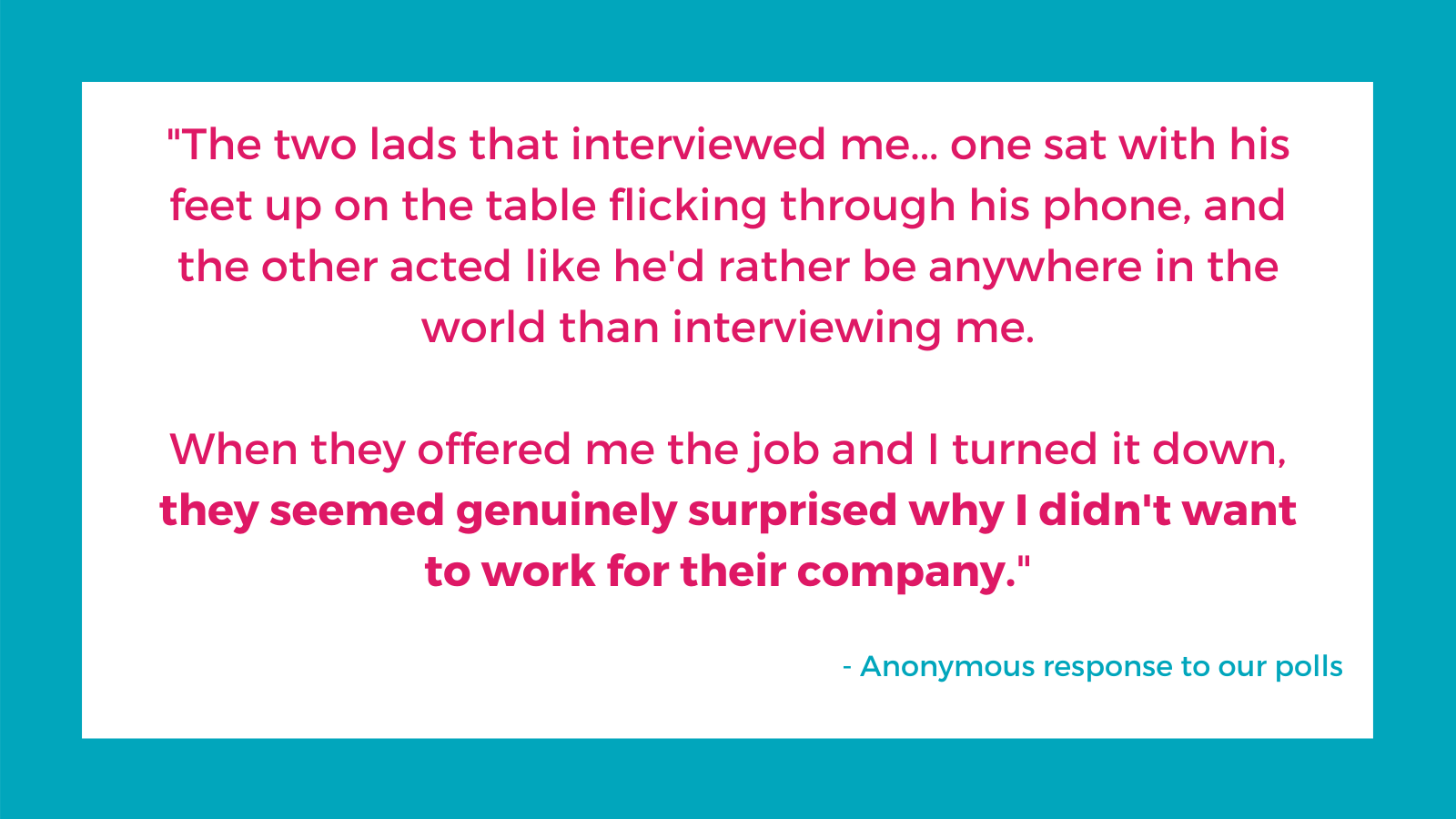
The most popular reason for a rejected job offer is ‘Bad interview vibes’, with 62.2% of respondents stating that this was the reason for their doing so. This just goes to show that a job interview is a two-way street, and the potential employer also needs to make an effort to impress the candidate, not just the other way around. Find out more about the power of your 'Employer Value Proposition' and what steps you can take to improve it here.
It is also interesting to note that the vast majority of anonymous responses we got explaining their decision in more detail were related to why the candidates got these bad interview vibes.
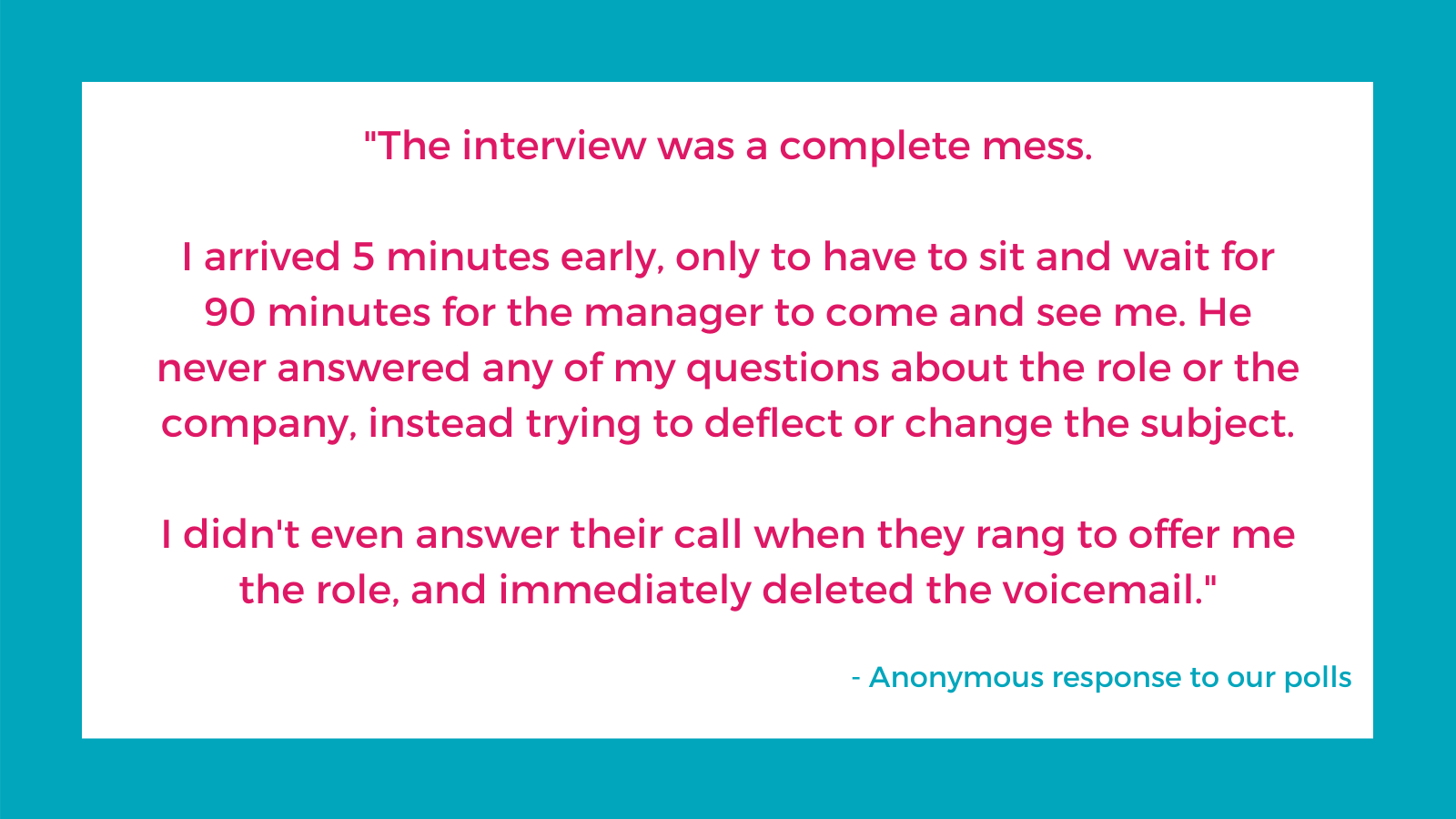
On Twitter there was an even split between the three main answers, with Bad pay/Better offer just about coming out on top. Here at We Are Adam, we have always believed that companies need to invest in their people in order to secure the top talent in their industry.
This is something that companies should be aware of, especially with the COVID pandemic. Whilst it may seem like the competitive job market means you can offer potential employees less money, this is likely to end up backfiring. That employee may leave for a better role the minute the job market picks back up, leaving you to re-hire and re-train again (a costly exercise, as we covered in our True Cost of Attrition blog). Or you may not even be able to secure that brilliant candidate in the first place, due to better offers from companies who are not looking to take advantage of the situation - leaving your competitors with better talent.
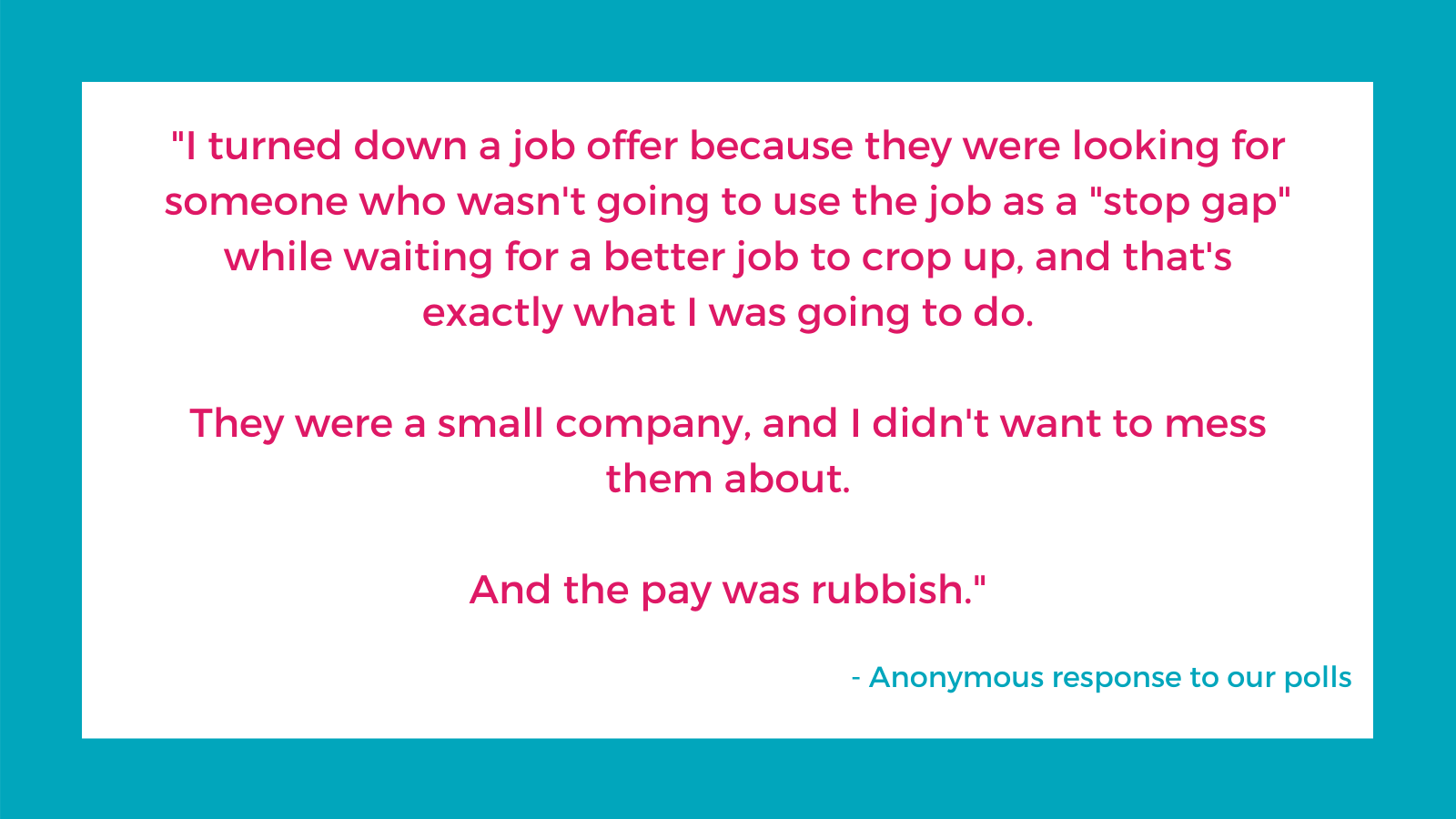
What can we learn?
So, what can business leaders learn from our results?
Firstly, to treat candidates with respect, especially during an economic crisis. Whilst it may be tempting to cut corners by offering lower pay, this is likely to end up costing you in the long run. Whilst the job market is tough as the economic effects of the COVID pandemic continue to bite, candidates are likely to remember which companies tried to take advantage of the situation and this reputation is likely to follow you once the economy recovers.
Secondly, remember that an interview is a two-way conversation. Whilst you may feel like the purpose is for the candidate to impress you, you should also be making an effort to impress them – especially if you wish to attract the industry’s best talent. And remember… jobseekers often talk to each other. The last thing you would want is a reputation for giving off bad vibes during interviews.
And lastly, company culture is important. Whilst it may not be the most common reason for turning down a role, it is still a significant portion of the results. Culture is not just about quirky offices and punchy catchphrases on the walls, it’s about your people and the environment you build for them.





.jpg)
.jpg)
.jpg)
.jpg)
.jpg)


